Learn how to use Video Recording in Tulip Vision
Vision Video Recording releases to Tulip Instances with Player 2.6.0/LTS13.
In this article, you will learn:
- How to set up Vision Video Recording in the App Editor
- How to use Vision Video Recording to support quality use cases
Handling and recording video is a requirement for many quality use cases. The Vision video recording feature captures video segments of quality events after they’ve taken place (i.e. 5 minutes or less of video).
Set up Vision video
There are three to four key Triggers to set up to utilize vision video recording.
- Start Video Buffer
- Save Video Buffer
- End Video Buffer
- Video Save
The diagram below shows the sequence of these triggers:
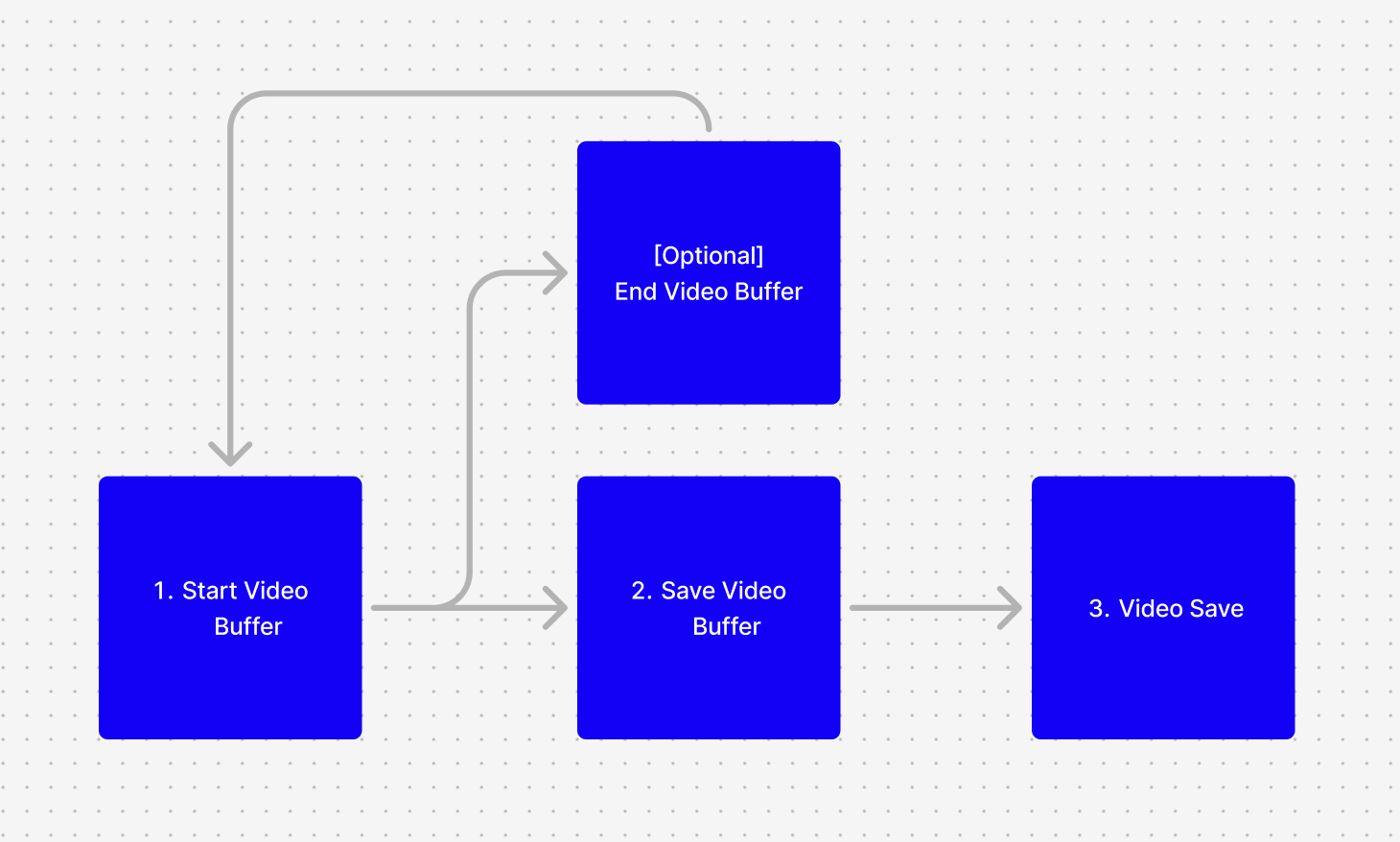
Start Video Buffer
Establish how long the video buffer records.
You can input a value between 5 and 300 seconds.
If you input a value under 5 or over 300, the value defaults to the minimum or maximum.
This will start an ongoing stream of video that, once ended, retains the last X seconds of video (X being the number of seconds inputted).
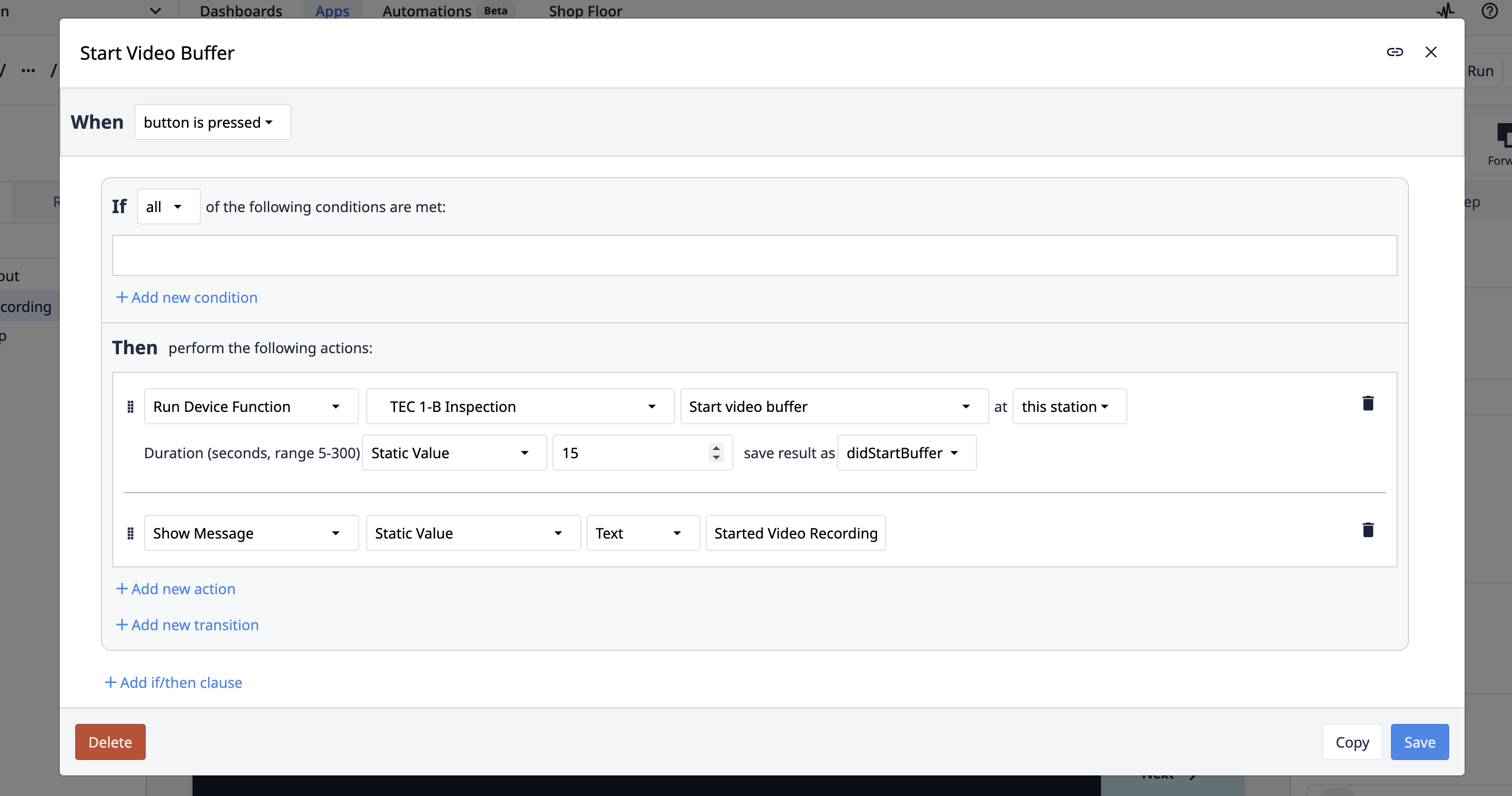
Save Video Buffer
This trigger ends the video buffer and stops the recording. It then allows Tulip to prepare the video as a S3 url.
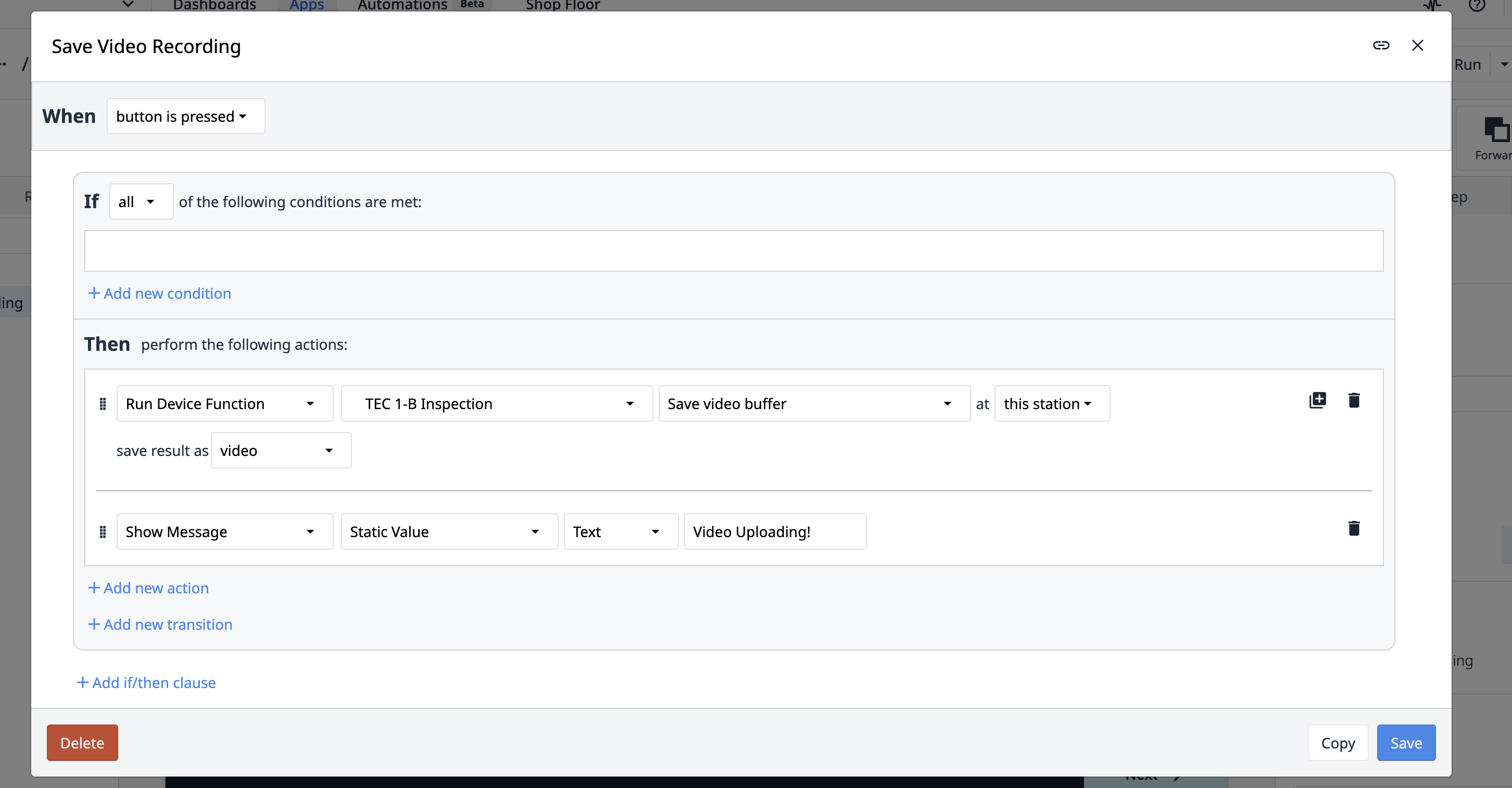
Video Save
Create a machine/device trigger that responds to the event Video Uploaded (the Save Video Buffer trigger). Once this event fires, Tulip provides the video in a S3 url. Users can choose to save the url in a table or show this in the app with an embdedded video widget.
In the example below, the video saves locally, but it can also be written to a table record.
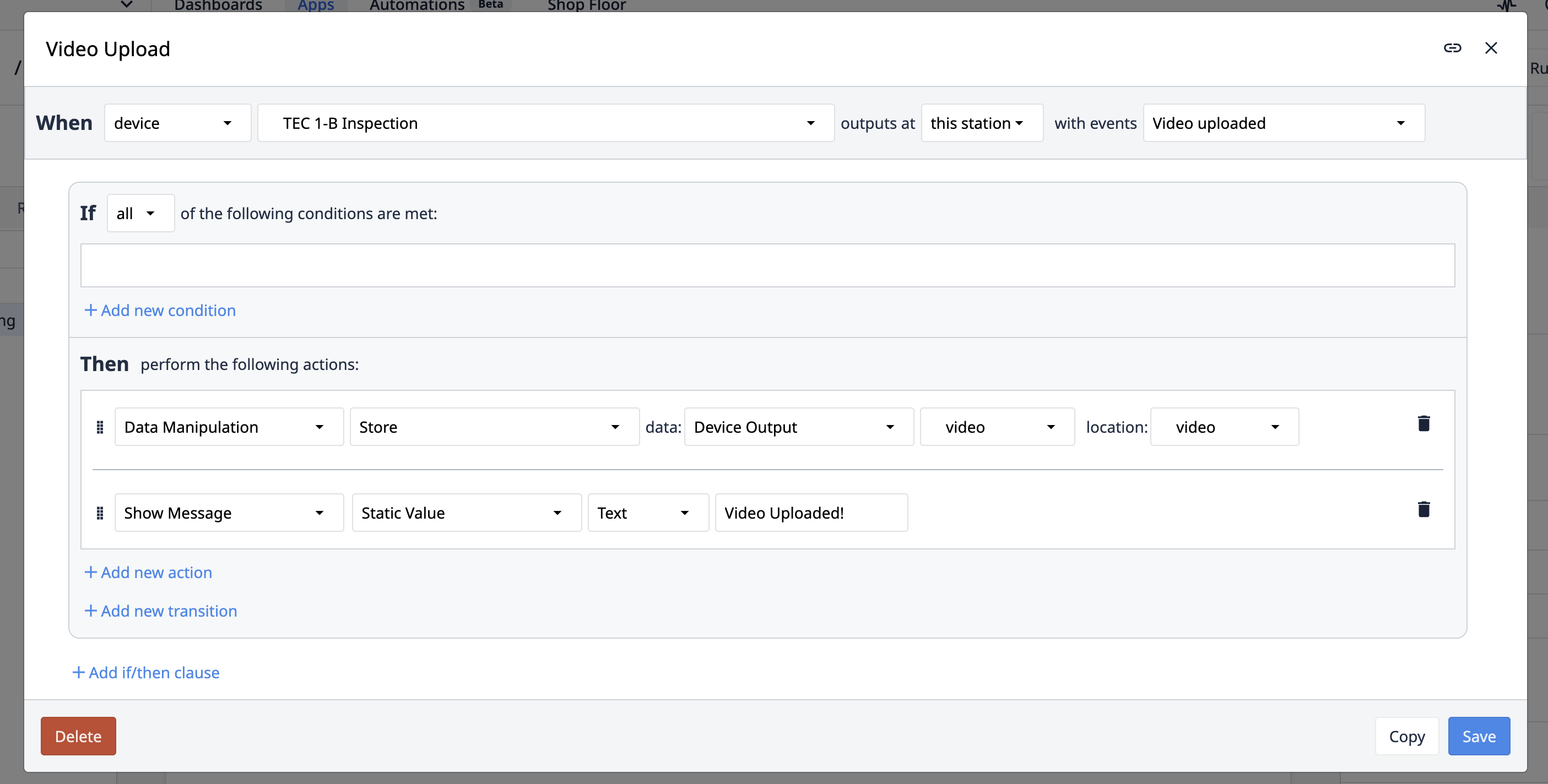
End Video Buffer
The end video buffer is optional. You can either cancel the video buffer via a button (see example below) or go to another step.
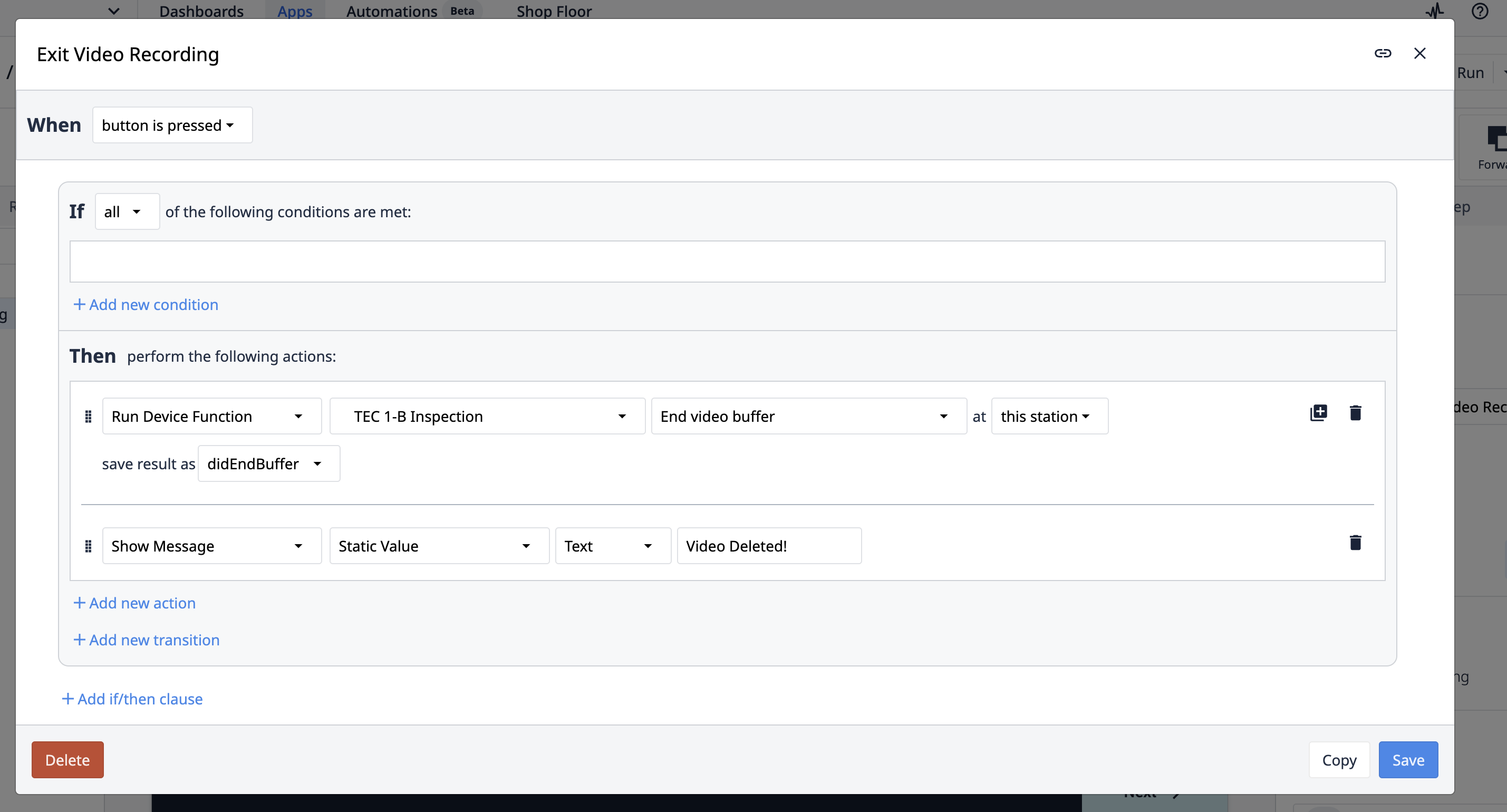
Quality Use Case
You want to record a quality use case of a motor assembly process. You need to confirm that every motor packaged has the required motor as well as a neccessary tool. This is to ensure that these are undamaged before shiping them to the customer.
Did you find what you were looking for?
You can also head to community.tulip.co to post your question or see if others have faced a similar question!
